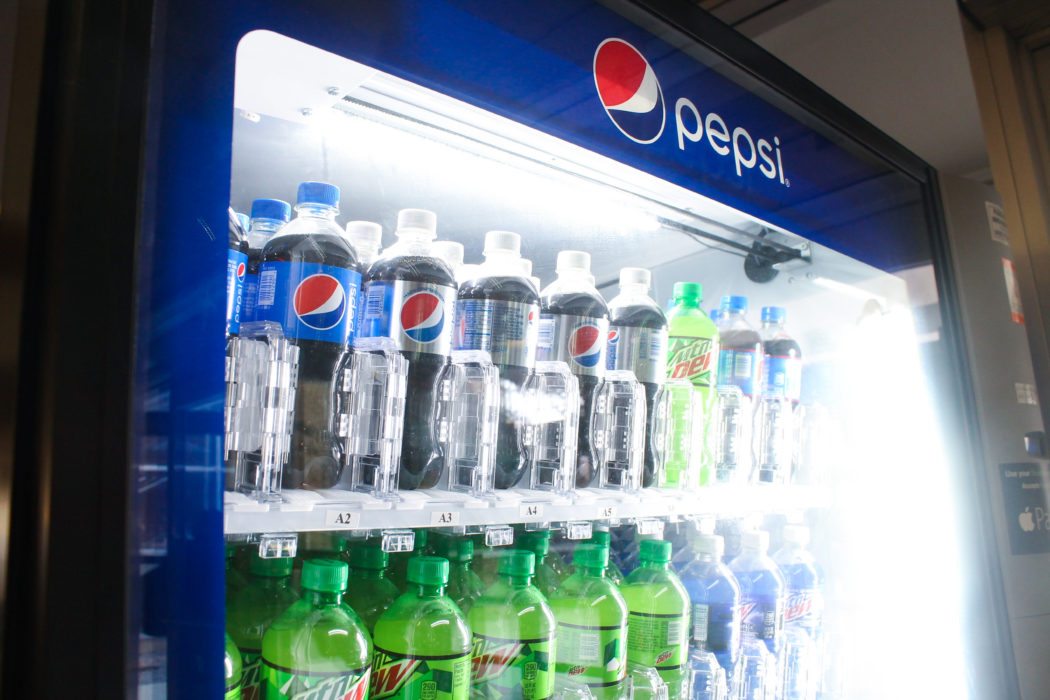Soda and scholarships? Pepsi provides funding for first and second-year students
Utah State University’s contract with Pepsi is ten and a half years old, and in that time Pepsi has does more than dominate the drink choice on campus. Pepsi funds the Aggie Smart Start Scholarship, which is open to incoming freshmen and second-year students who reside in central campus housing.
“The concept of Pepsi giving the university money, we give to students, students eat in our dining halls and drink Pepsi. That’s one of the really nice things about this contract,” said Alan Andersen, USU Dining Services executive director.
The scholarship assists students in paying for their meal plan.
“People sometimes put down meal plans. For a freshman, it’s part of the Residential Life Program,” Andersen said. “They are able to build a community within the dining halls to help them be able to afford that type of atmosphere, it’s really a good thing,” Andersen said.
Andersen said Pepsi gives USU $50,000 each year for the Smart Start Scholarship and another $4,000 for Resident Life activities or USU Student Association events.
100 students are selected for the freshmen scholarship every semester. Sofia Rodriguez Walter, Aggie Smart Start Scholarship coordinator, said the majority of the students are in it for the academic year.
“It’s a great program that helps them navigate the first challenging year,” Walter said.
The scholarship consists of ten academic peer mentors, eight assigned over the freshmen program and two over the second-year program. Each mentor is a USU undergraduate student who has at least one semester in college experience. They are each assigned over cohort group. Students who receive the scholarship are required to meet with their mentor and attend scholarship-wide events such as the end of year banquet.
Walter said that the peer mentors are trained to recognize common problems incoming students have such as mental illness and homesickness.
“We are aware that for students to be able to succeed academically, they need to have all other aspects of their lives balanced,” Walter said.
Walter said a new addition for the scholars is the incorporation of work by Stephen Covey, founder of the FranklinCovey Co. In the fall, students received one credit for taking the course USU 2160, which is a training based on Covey’s book, “Seven Habits of Highly Effective People.” The course is only offered to those in the scholarship program. Starting in March, the students will participate in another FranklinCovey Co. program, “The Five Choices to Extraordinary Productivity,” also for one USU credit.
Walter said these courses are beneficial because, “students are able to take those values and apply them to their life.”
“Helping students with specific problems makes Covey’s material a helpful reference for mentors,” Walter said. The peer mentors are trained facilitators for the classes and are the ones who facilitate the class weekly for students in the scholarship program.
Freshmen students in the program receive $150 and one credit for taking the exclusive USU 2160 class.
Pepsi contributes $250 per semester to second-year students who reside in central campus and participate in the Second-Year Experience scholarship program.
“We know that second-year students have very specific needs compared to first year and older students,” said Whitney Milligan, the director of USU Housing and Residence Life.
Milligan said that the second-year is when students are the most likely to drop out because they are receiving significantly less help. The second-year scholars are required to attend a monthly symposium series. The theme for the symposium is “you don’t know what you don’t know,” and it aims to provide answers to questions many second-year students didn’t know they had.
The symposium series includes speakers who touch on a wide array of topics from resume building to financial aid information. Second-year students also meet with an assigned academic peer mentor, as part of a requirement for the participation in the program.
Milligan said in the future she is hoping to formally extend the program to the Living Learning Community, another on-campus residence hall.
“That second-year is really critical. This program is designed to help provide support for second-year students because they are in that unique position,” Mulligan said.
More information about the scholarships are available at http://www.usu.edu/housing/scholarships/
—b96russell@gmail.com
@bjr24601

